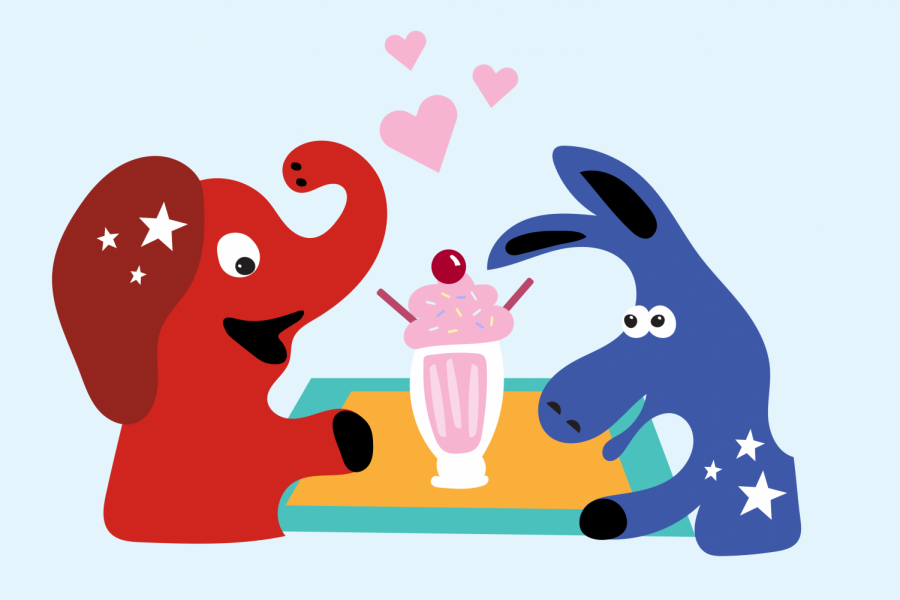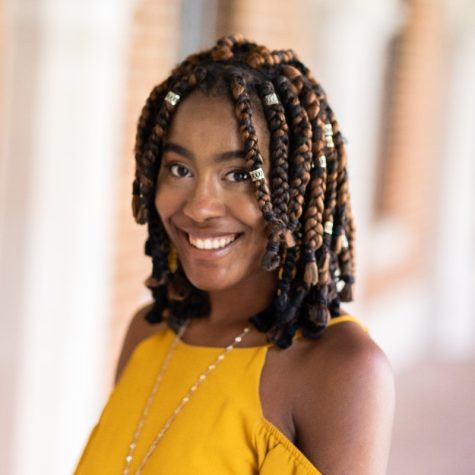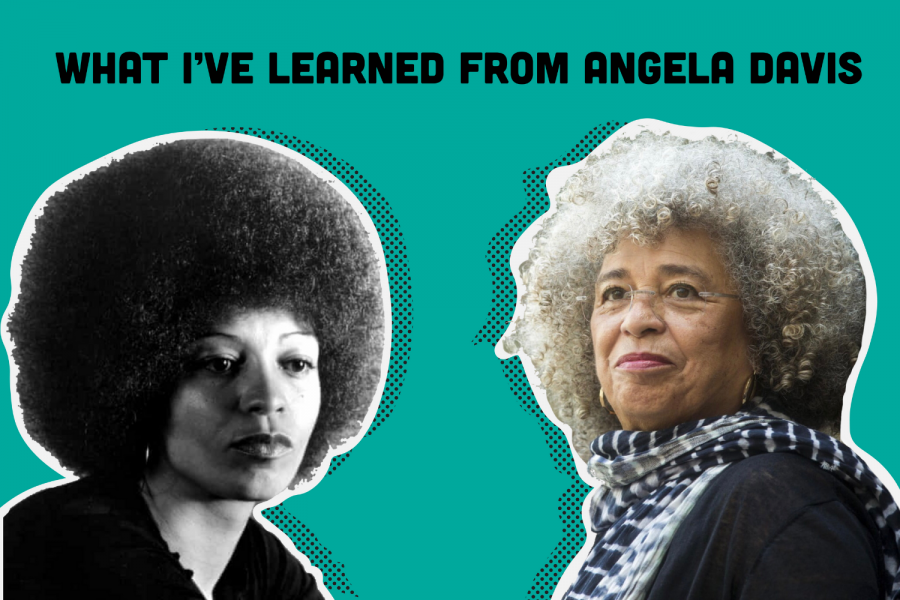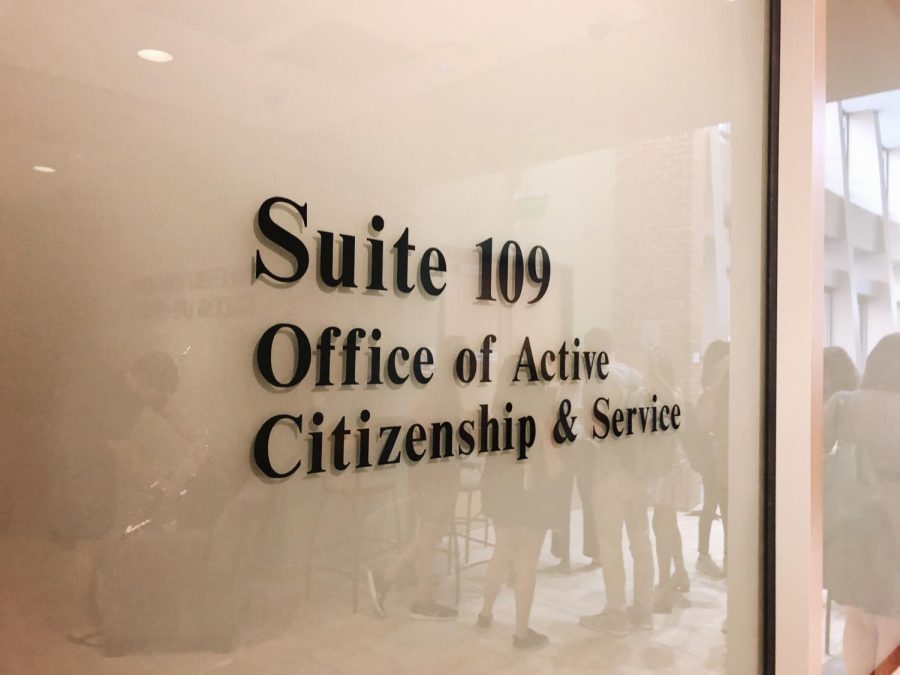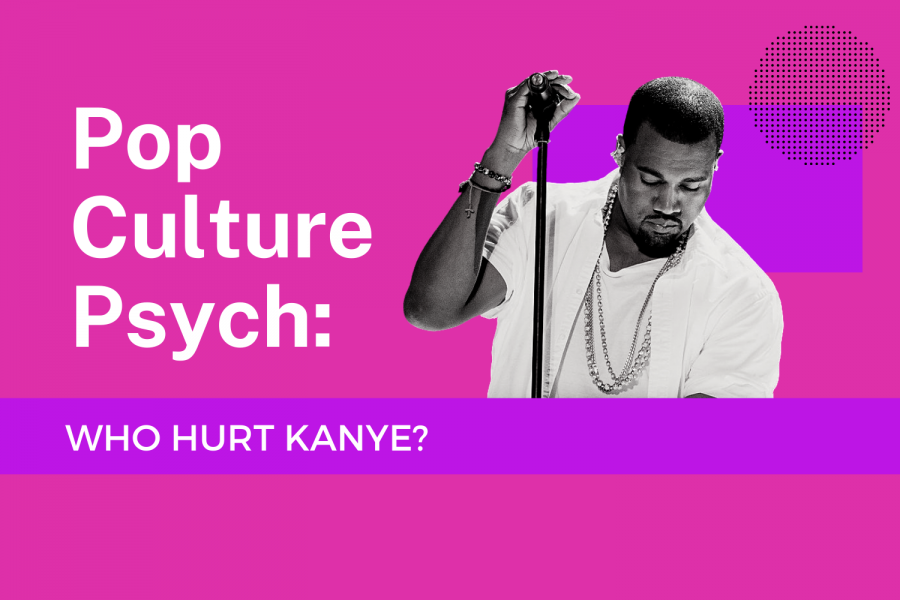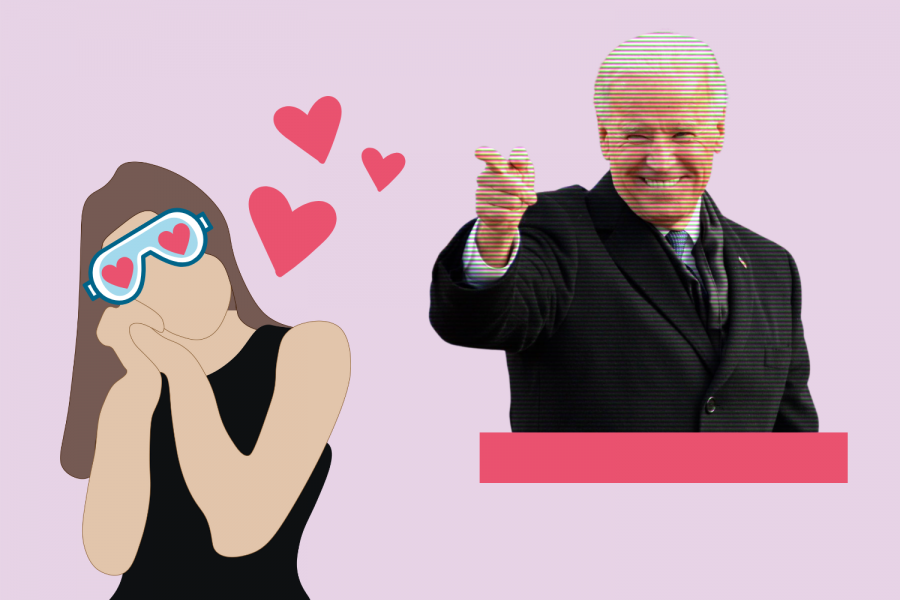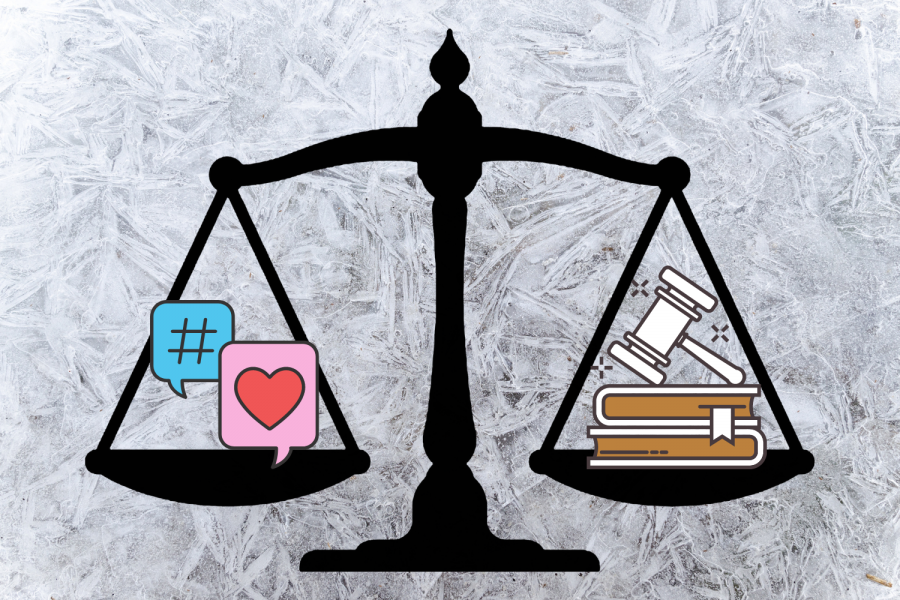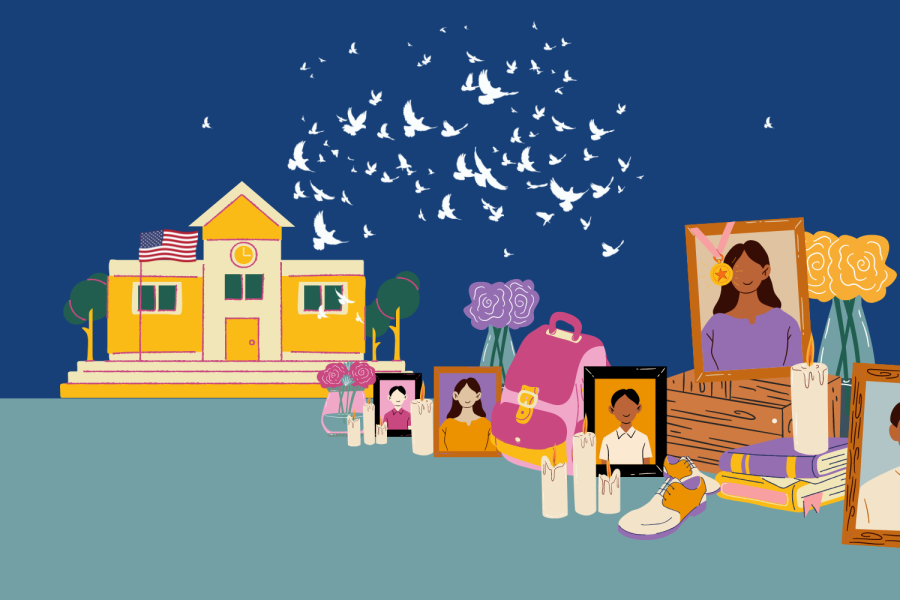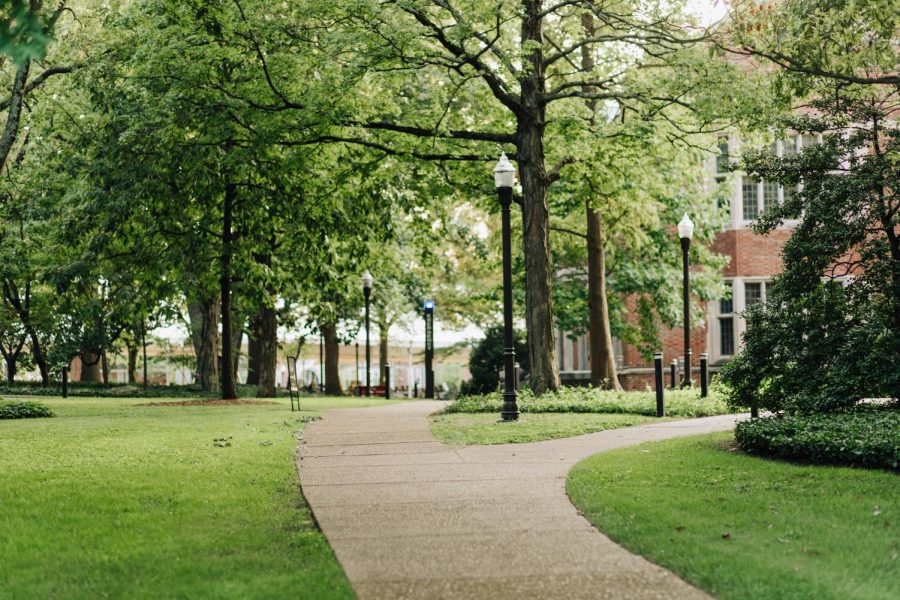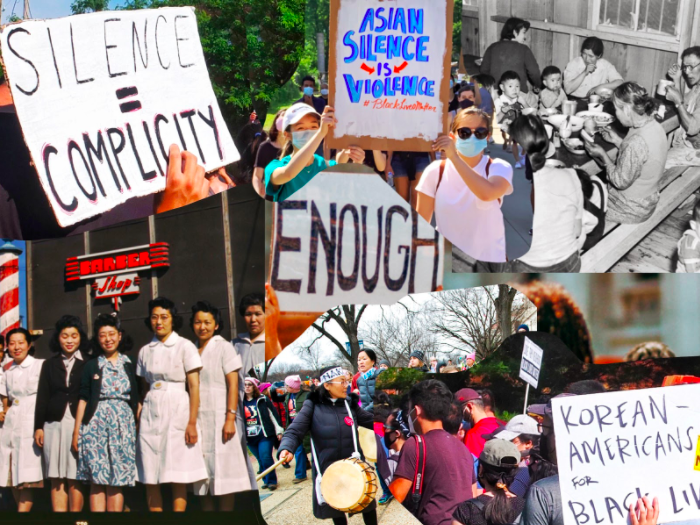“Why can’t we all just get along?” Respectfully, no.
The last question asked during the vice-presidential debate was expressed in an essay written by a junior high student, and made its way to the debate stage through a contest. As articulated by the moderator, Susan Page, it questioned why everyone, politicians and citizens alike, is arguing. It asked why our country is “divided” and why “citizens fight each other?” It asked why are there “trends of argument and anger?” Respectfully, no.
Last week I stumbled upon a photo of a man holding a Biden flag and another man holding a Trump flag shaking hands in a viral “be kind” tweet. Many praised the photo for its display of unity. They were draped in garb for their preferred candidates, yet managed to exhibit affection. Many saw the photo as the desired ability for citizens to “look past politics” and remain acquainted. Respectfully, no.
In answering the essay question, Vice President Pence responded, “The American people, each and every day, love a good debate and a good argument. But we always come together, and we’re always there for one another in times of need. And we’ve especially learned that through the difficulties of this year.”
The “difficulties” of this year are hundreds of thousands of deaths due to COVID-19, and thus, the illuminated exposure of inequitable healthcare regulations. The “difficulties” of this year are the heightened brutality of the police fatally waged onto Black Americans. To view these so-called “difficulties” as a topic for a “good debate” and a “good argument” reeks of the privilege to remain unaffected. As someone whose politics principally revolve around the liberation of minorities and Indigenous Americans, undoing of systemic patriarchal white supremacy and the decriminalization of the poor, I have no desire to “come together” with someone who thinks my freedoms, and those of anyone else, are simply an opportunity to show off polished debate chops, impudent remarks and cheeky jabs.
I’m not a hot discussion topic.
The whiteness of the two men shaking hands in the viral photo (one of whom was of course maskless) is a central factor in their ability to “look past politics.” Additionally, this ability is a central factor in how we go about forming our friendships and relationships. As put by serial slave owner Thomas Jefferson, “I never considered a difference of opinion in politics, in religion, in philosophy, as cause for withdrawing from a friend.”
What a nice thought. However, that doctrine didn’t fly during an era when a “difference in politics and philosophy” meant a different view on chattel slavery, and it doesn’t fly in an era where we are still grappling with the repercussions of the institution and the aftermath of the racist apparatuses immediately put in place post-abolition and during Jim Crow.
The ability to “look past politics” and remain friends with someone you fundamentally disagree with on policies, for example, regarding equitability, does not make you “noble” or a “good citizen.” It exposes that their beliefs do not necessarily harm you directly. While I’m not advocating to cut off one’s friends because they disagree with you politically, we must question our definition of politics. To me, there is not a single political issue plaguing the United States today that wouldn’t drastically change if the constructs of race, class, religion and gender were not factors used to inform said issue.
For that reason, my definition of politics does not include the notion that Black lives indisputably matter. It does not include the notion that bodily autonomy is a right. It doesn’t include points of debate that wouldn’t even be up for debate if white supremacy did not exist. To complain that our nation is “divided” acts as though we haven’t been at an ideological civil war since the Confederacy was allowed to survive the Civil War, and that modernly, “far-left” and “far-right” doesn’t immediately call to mind hate groups.
To a less extreme extent, many argue that having friendships with those on opposing sides of the political spectrum allows one to refine their ideals as well as engage in critical self-reflection. Furthermore, a guilt complex halts means for rationalization and analytical conversations on tangible goals. Put better in the words of Theodor Adorno, “The only way to leave such personal short-sightedness behind is through an education towards autonomy, reflection and self-determination; an education that enables individuals to become resilient towards authoritarian tendencies.”
Friendships are a useful means of education, however, to allow politics to be the “quiet” part of one’s relationships with others, dissuades from reflection and encourages the continuation of short-sightedness.
Politics are morals in action. The collective obsession with entertainment that informed how we watched the debates, the celebritization of political candidates and deluded political allegiance that pretends politics are the same as sports, often leaves us at a cognitive dissonance to the tie between political opinions and morality. However, as studies have shown actions are manifestations of political beliefs. These political beliefs then inform one’s humanity. As said by Aristotle, “the presence of friends, then, seems desirable in all circumstances.” What does it mean when friendships are only circumstantial?
I value friendships with people who disagree with me on the ways in which we reach a society of complete equitability. However, a difference in opinion on the meaning of absolute equitability and if we should reach or have the means to reach that society, translates to comfort in living in an inequitable society, where usually someone is systematically placed below you.
Questioning why we all can’t get along and “bridge the divide,” in hopes that we hold hands and sing kumbaya while the U.S. COVID death toll increases and the police continue to beat protestors senseless is tactless. Rather, time would be better spent questioning how we can allow our politics to inform our friendships, instead of remaining a topic to steer clear of.
A world in which we look past problematic politics to maintain friendships should not be the goal. Instead, our goal should be a world where politics and questions of liberation are not at odds. Allowing politics to play a rightful role in determining who we call a friend is one step in getting there.












